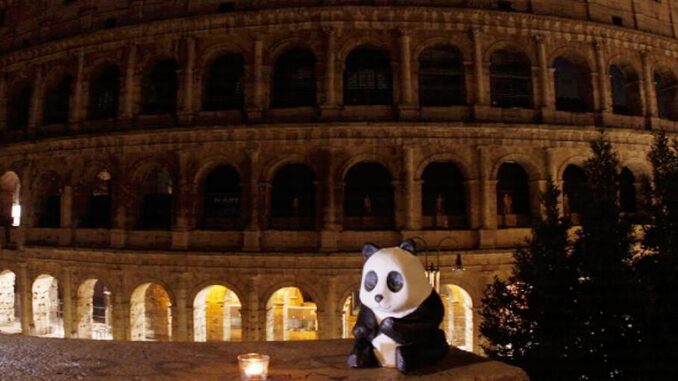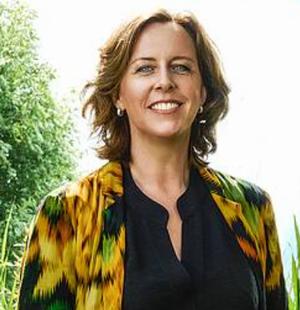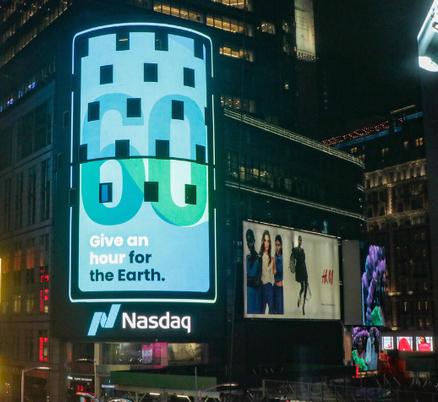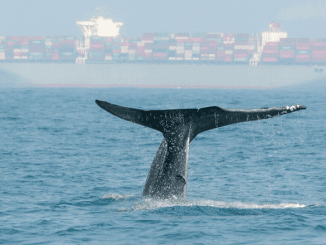
SINGAPORE, March 21, 2024 (ENS) – Across the world, people by the millions will be turning off their lights – going dark for one hour on Saturday, March 23, starting at 8:30 in the evening local time – to give the planet a rest. It’s Earth Hour, a global movement organized by the World Wildlife Fund, WWF, that has attracted more participants year by year since the first Earth Hour in March 2007.
Held only in Sydney, Australia, that first Earth Hour inspired 2.2 million people to turn off their lights for one hour to show a climate-sceptic government that Australians cared about climate change.
In 2008, 50 million people in 35 countries took part in the second Earth Hour. Major landmarks that went dark for Earth Hour 2008 included San Francisco’s Golden Gate Bridge and the historic Colosseum in Rome, completed in the year 80 CE and still the world’s largest standing amphitheatre.
Earth Hour 2024, organized from Singapore, will focus on uniting people across 190 countries and territories, expanding its reach by encouraging individuals to give an hour for the Earth.
This call to action invites people to spend 60 minutes doing something positive for the planet, something that aligns with their individual interests and passions. Last year, when WWF’s invitation to give an hour was issued, over 410,000 hours were given to the planet, and this year the organizers aim to add to those hours.
Track this year’s hours pledged at the Hour Bank, a tally of planet-positive actions pledged for Earth Hour 2024.

Environmental scientist Dr. Kirsten Schuijt of the Netherlands, director general, WWF International, looks forward to welcoming more Earth Hour participants. “More people than ever need to join this year’s Earth Hour to leverage the collective power of individuals and communities. It’s crucial to get involved, if we want to raise awareness about the environmental challenges and bend the curve of biodiversity loss by 2030.”
“To truly unite millions across the globe, it is important that Earth Hour expands beyond its already massive pool of current supporters and engages with individuals who have not been involved yet,” Schuijt said. “Protecting our planet is a shared responsibility and it demands collective action from every corner of society.”
Earth Hour is best known for the “lights off” hour, with people switching off their lights to show symbolic support for the planet and to raise awareness of the environmental issues affecting it.
Eighteen years later, we need Earth Hour more than ever as Earth Hour organizers point out that humanity is “now at a tipping point with our climate and nature crises, putting at risk the fate of our one home and all our futures.”
By 2030, humanity is predicted to breach the 1.5°C global temperature increase limit set by the Paris Climate Agreement. “The next seven years are crucial to all our futures – we have to stay under the 1.5°C climate threshold to avoid irreversible damage to our planet, and we need to reverse nature loss by 2030, ending the decade with more nature than we started, not less,” Earth Hour organizers say.
On Saturday, Earth Hour invites everyone to switch the lights off and spend 60 minutes doing something – anything – positive for our planet.
WWF-Singapore is holding an open air festival all day on March 23. The Earth Hour Festival at Wisma Atria Singapore encourages climate resilience through community engagement, featuring a symbolic Switch Off moment and a curated suite of climate-conscious activities such as art performances, educational stations, and expert talks.
At the heart of WWF-Singapore’s Earth Hour Festival are the individuals who contribute activities to WWF’s global effort, the Hour Bank.
Moving “Beyond the Hour,” WWF-Singapore encourages participants to embrace lasting change by integrating eco-conscious practices into their daily lives, from reducing single-use plastics to adopting sustainable consumption habits.
Vivek Kumar, chief executive officer, WWF-Singapore, said, “This Earth Hour, WWF-Singapore celebrates the everyday actions of individuals, families and the wider community in tackling climate change. We hope that more Singaporeans will join this year’s Earth Hour Festival to signal our collective resolve to create a meaningful impact at home and beyond, and tap into the global Hour Bank to amplify the significance of each of our actions. I thank our partners and supporters for joining us in this movement towards Singapore’s Net Zero goals.”

This year, for the first time, Earth Hour has a commercial partner, the Seiko Epson Corporation. Commonly known as Epson, this Japanese multinational electronics company is one of the world’s largest makers of printers and imaging-related equipment.
“We are immensely proud to be WWF’s first Earth Hour International Partner for this year’s Earth Hour. Our partnership underscores the vital importance of stakeholder engagement in driving meaningful climate action. The education and engagement of individuals and organisations are critical in our efforts to create a more sustainable future for our planet,” Siew Jin Kiat, regional managing director, Epson Southeast Asia, said.
“One hour may not seem like much,” WWF says, “but the magic happens when you, and those like you in Asia and Africa, North and South America, Oceania and Europe – supporters in over 190 countries and territories – all give an hour for our one home, creating the Biggest Hour for Earth.”
Featured image: Earth Hour 2021 celebrations in Rome, Italy where the 1,944-year-old Coliseum went dark for an hour, as it has since 2008. WWF’s panda mascot is shown enjoying a celebratory beverage. March 27, 2021 (Photo © Emanuele Coppola / WWF-Italy)



